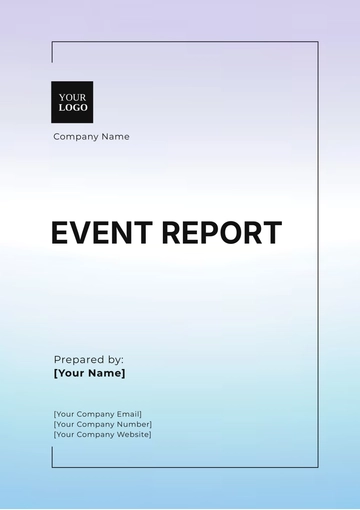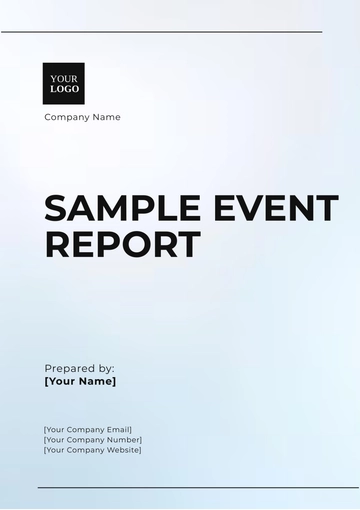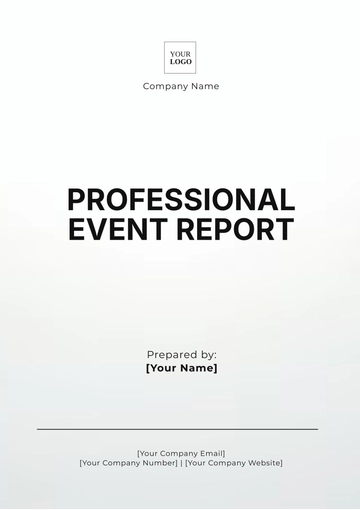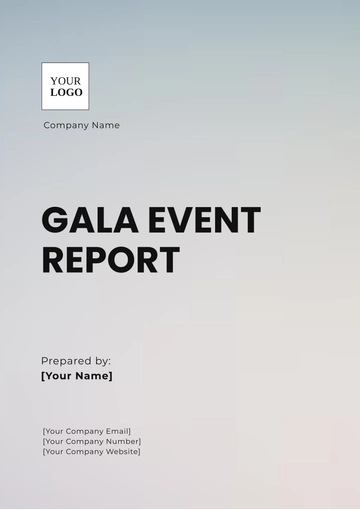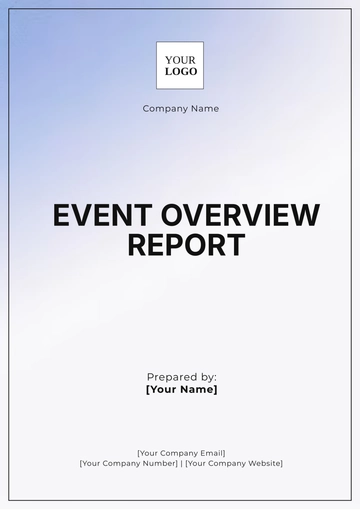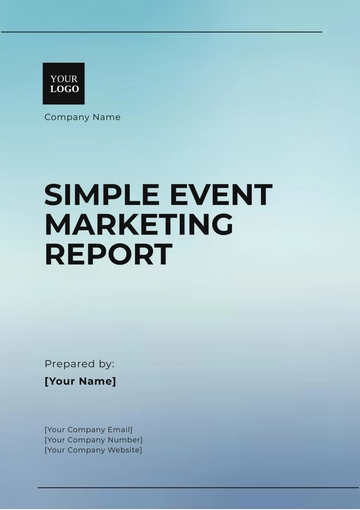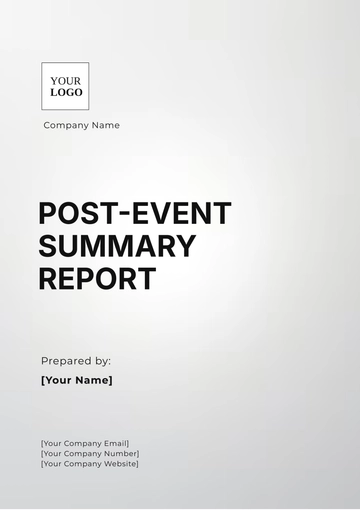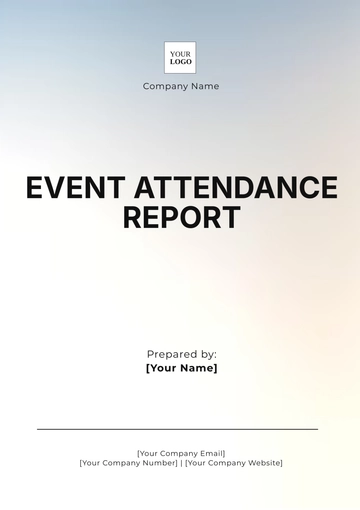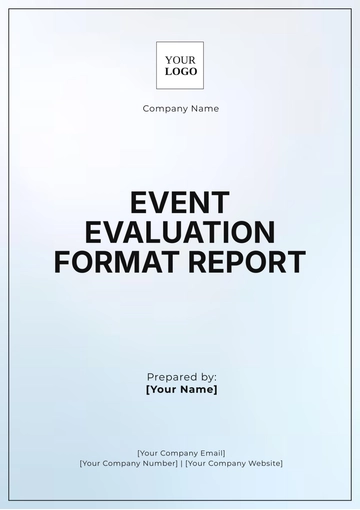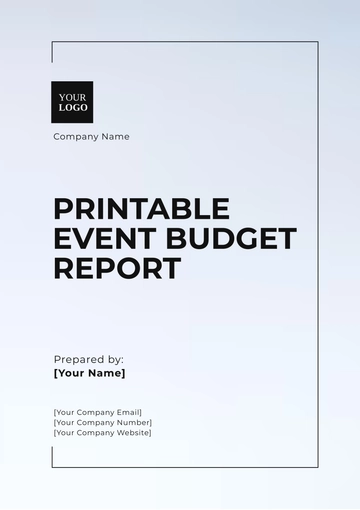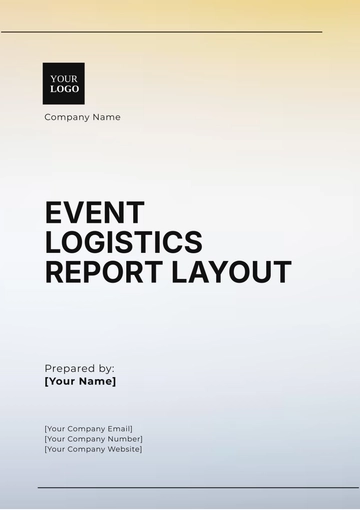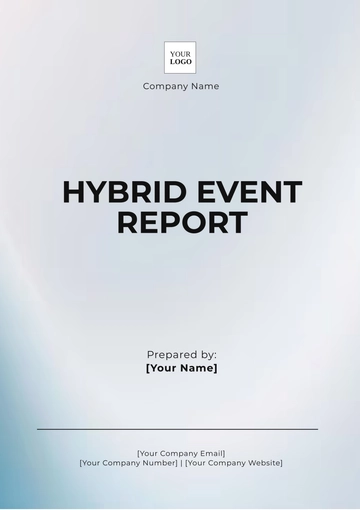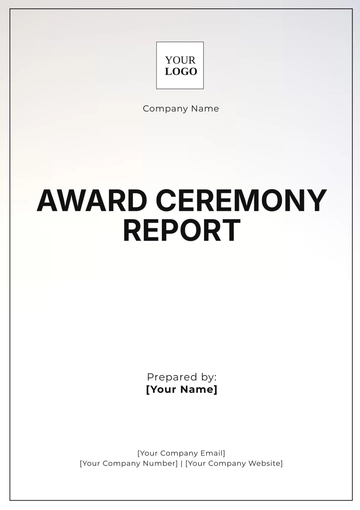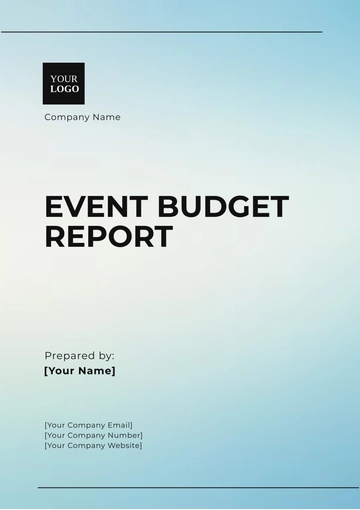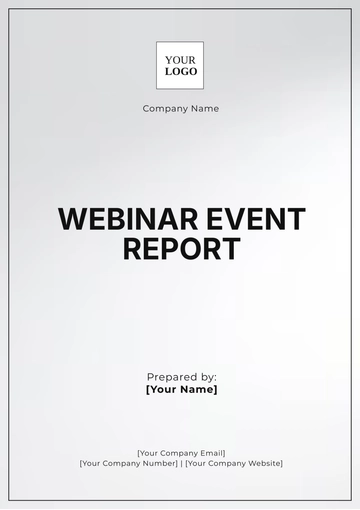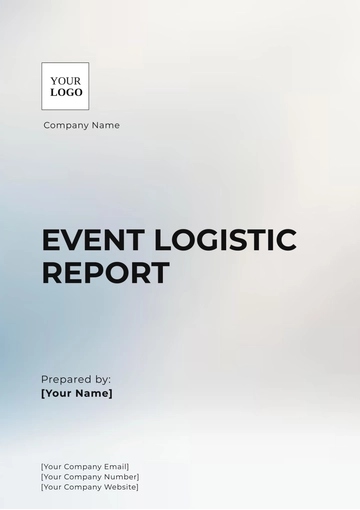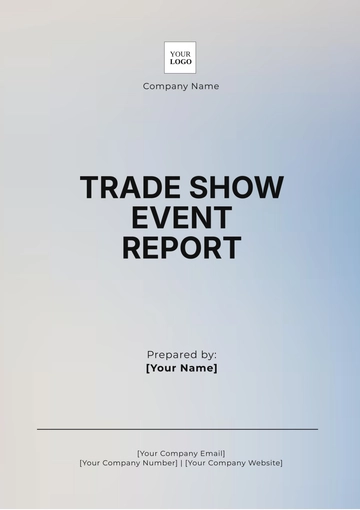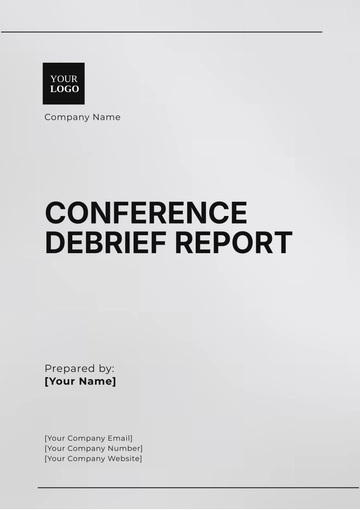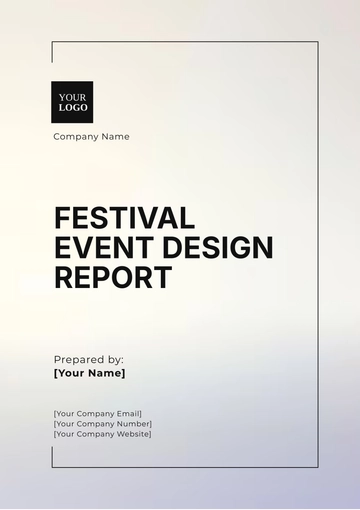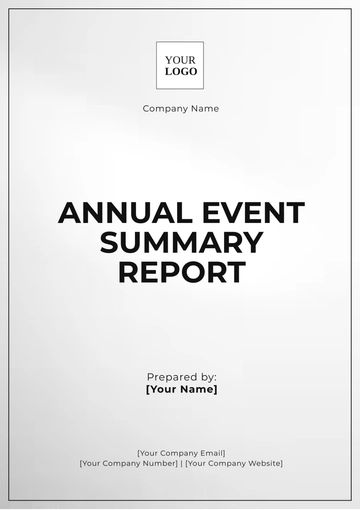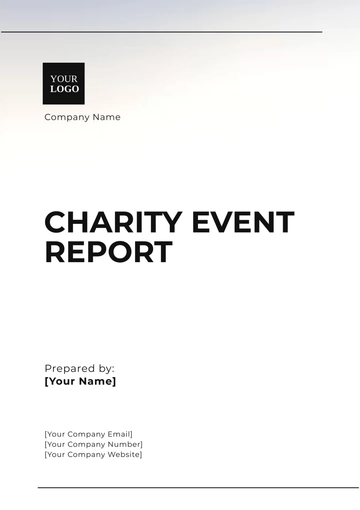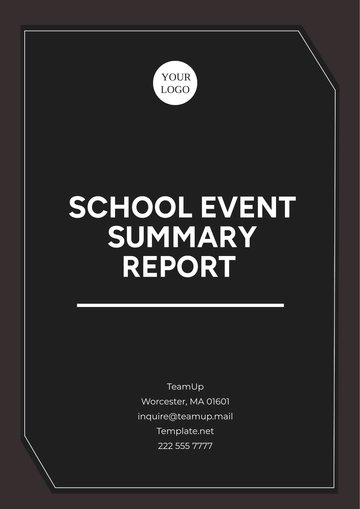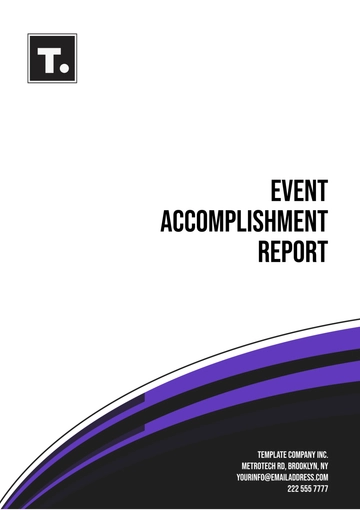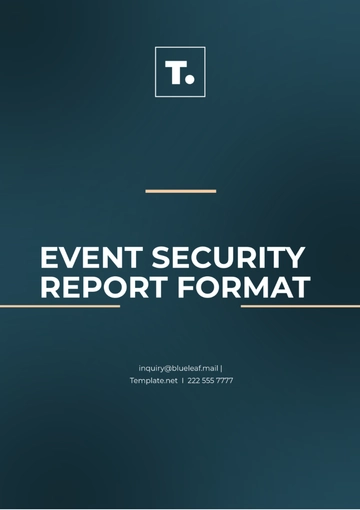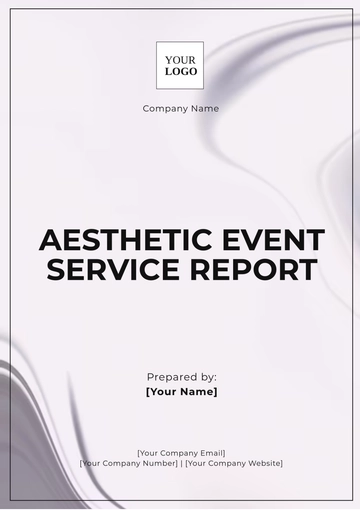Free Marketing Post-Event Report
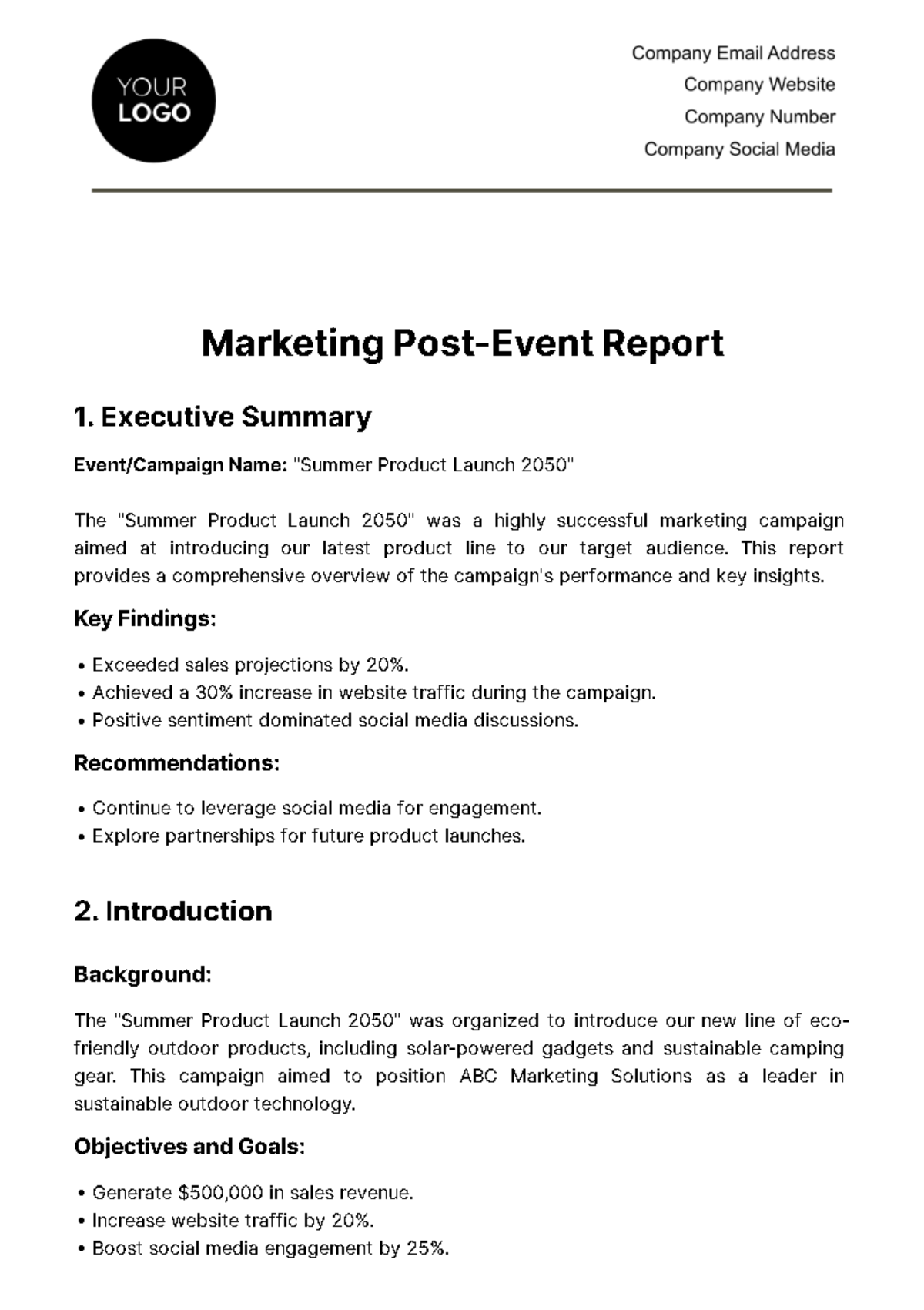
1. Executive Summary
Event/Campaign Name: "Summer Product Launch 2050"
The "Summer Product Launch 2050" was a highly successful marketing campaign aimed at introducing our latest product line to our target audience. This report provides a comprehensive overview of the campaign's performance and key insights.
Key Findings:
Exceeded sales projections by 20%.
Achieved a 30% increase in website traffic during the campaign.
Positive sentiment dominated social media discussions.
Recommendations:
Continue to leverage social media for engagement.
Explore partnerships for future product launches.
2. Introduction
Background:
The "Summer Product Launch 2050" was organized to introduce our new line of eco-friendly outdoor products, including solar-powered gadgets and sustainable camping gear. This campaign aimed to position ABC Marketing Solutions as a leader in sustainable outdoor technology.
Objectives and Goals:
Generate $500,000 in sales revenue.
Increase website traffic by 20%.
Boost social media engagement by 25%.
3. Event/Campaign Overview
Event/Campaign Description:
The campaign ran from June 1, 2050, to July 15, 2050, and featured a combination of online and offline activities, including webinars, social media promotions, and a product launch event at our flagship store in [Your Company Address].
Target Audience:
Our primary target audience included environmentally-conscious consumers, outdoor enthusiasts, and tech-savvy individuals interested in sustainable products.
4. Marketing Strategy
Strategies and Tactics:
Digital Marketing: Leveraged social media platforms, email marketing, and paid advertising to create awareness.
Content Marketing: Published blog posts and videos showcasing the product features and benefits.
Webinars: Conducted educational webinars to engage and inform the audience.
In-Store Event: Hosted a product launch event with product demos and discounts.
Budget Allocation:
Expense Category | Budget Allocation ($) | Actual Expenses ($) |
Digital Marketing | $50,000 | $45,000 |
Content Marketing | $20,000 | $18,000 |
Webinars | $10,000 | $11,500 |
In-Store Event | $15,000 | $14,000 |
Miscellaneous | $5,000 | $4,500 |
Total Budget | $100,000 | $93,000 |
5. Key Metrics and KPIs
Key Performance Indicators (KPIs):
Sales Revenue
Website Traffic
Social Media Engagement
ROI
Metrics Data:
Sales Revenue: Generated $600,000 in sales revenue, exceeding the goal of $500,000.
Website Traffic: Increased website traffic by 30% compared to the pre-campaign period.
Social Media Engagement: Achieved a 35% increase in social media engagement.
ROI: Achieved an impressive ROI of 150%.
6. Audience Feedback
Customer Feedback:
Customers praised the eco-friendly product range and the informative webinars. Positive comments included remarks about product quality and sustainability.
Social Media Sentiment Analysis:
A sentiment analysis of social media mentions showed that 90% of discussions were positive, 8% were neutral, and only 2% were negative.
7. Successes and Challenges
Successes | Challenges |
|
|
8. Lessons Learned
Insights:
Leveraging social media for engagement is highly effective.
Webinars are a valuable educational tool.
In-store events require meticulous planning and logistics.
Improvement Opportunities:
Enhance in-store event management.
Schedule webinars more efficiently for better audience reach.
9. Recommendations
Actionable Recommendations:
Continue to prioritize sustainability in product development.
Invest in influencer partnerships for future product launches.
Explore regional expansion for in-store events.
Strategy Changes:
Increase the budget allocation for influencer partnerships.
Implement a more robust webinar scheduling system.
10. Budget vs. Actual
Budget Overview: The total budget allocated for the campaign was $100,000.
Actual Expenses:
The actual expenses amounted to $93,000, resulting in a cost-effective campaign.
11. Conclusion
Overall Assessment:
The "Summer Product Launch 2050" campaign exceeded expectations and significantly contributed to our company's reputation as a leader in sustainable outdoor technology. The campaign demonstrated the effectiveness of our marketing strategies and the strong alignment with our objectives.
12. Acknowledgments
We extend our gratitude to the dedicated team members at ABC Marketing Solutions who contributed to the success of the "Summer Product Launch 2050."
- 100% Customizable, free editor
- Access 1 Million+ Templates, photo’s & graphics
- Download or share as a template
- Click and replace photos, graphics, text, backgrounds
- Resize, crop, AI write & more
- Access advanced editor
Unlock insightful analysis and streamline post-event evaluation with our Marketing Post-Event Report Template, exclusively from Template.net. This editable and customizable tool, easily modified in our Ai Editor Tool, simplifies data interpretation, allowing you to glean invaluable insights and refine future strategies effortlessly. Elevate your event assessment process today!
You may also like
- Sales Report
- Daily Report
- Project Report
- Business Report
- Weekly Report
- Incident Report
- Annual Report
- Report Layout
- Report Design
- Progress Report
- Marketing Report
- Company Report
- Monthly Report
- Audit Report
- Status Report
- School Report
- Reports Hr
- Management Report
- Project Status Report
- Handover Report
- Health And Safety Report
- Restaurant Report
- Construction Report
- Research Report
- Evaluation Report
- Investigation Report
- Employee Report
- Advertising Report
- Weekly Status Report
- Project Management Report
- Finance Report
- Service Report
- Technical Report
- Meeting Report
- Quarterly Report
- Inspection Report
- Medical Report
- Test Report
- Summary Report
- Inventory Report
- Valuation Report
- Operations Report
- Payroll Report
- Training Report
- Job Report
- Case Report
- Performance Report
- Board Report
- Internal Audit Report
- Student Report
- Monthly Management Report
- Small Business Report
- Accident Report
- Call Center Report
- Activity Report
- IT and Software Report
- Internship Report
- Visit Report
- Product Report
- Book Report
- Property Report
- Recruitment Report
- University Report
- Event Report
- SEO Report
- Conference Report
- Narrative Report
- Nursing Home Report
- Preschool Report
- Call Report
- Customer Report
- Employee Incident Report
- Accomplishment Report
- Social Media Report
- Work From Home Report
- Security Report
- Damage Report
- Quality Report
- Internal Report
- Nurse Report
- Real Estate Report
- Hotel Report
- Equipment Report
- Credit Report
- Field Report
- Non Profit Report
- Maintenance Report
- News Report
- Survey Report
- Executive Report
- Law Firm Report
- Advertising Agency Report
- Interior Design Report
- Travel Agency Report
- Stock Report
- Salon Report
- Bug Report
- Workplace Report
- Action Report
- Investor Report
- Cleaning Services Report
- Consulting Report
- Freelancer Report
- Site Visit Report
- Trip Report
- Classroom Observation Report
- Vehicle Report
- Final Report
- Software Report
